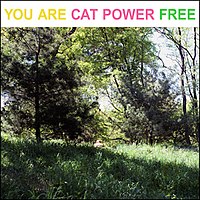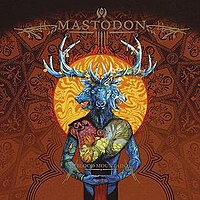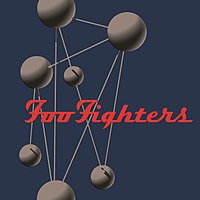 Band:
Band: Cat Power
Album: You Are Free
Best song: "He War" and "Maybe Not" are great. "Names" and "Speak for Me" are fantastic, as well.
Worst song: Not. A. One.
Full disclosure: I'd listen to Chan Marshall read the phone book. I find her voice to be among the best female voices in music, if not the
best. I've seen her live twice, despite knowing that she's a total train wreck live (Though, she now says that was an alcohol thing and she's sober now).I don't have a top ten favorite albums list or anything like that. I kind of wish I did, but I don't (I do have five favorite songs). I have a series of albums that I call "go-to records." These are the records that I can listen to, front to back, with only skipping one or two songs (if that).
MPII is one.
Nevermind. Anything Tortoise record. Overall, there aren't a ton of records I can say that about.
You Are Free is one of them.
---
"Free" is a weird word and an even weirder concept. In an age of George W. Bush: President, the idea is an overwhelmingly strange one. Certainly, Bush's overuse of the word -- he's told us that the terrorists hate our "freedom" about a million times -- has almost made it unimportant and silly. Among the crowd I run with, "freedom" -- especially when done in Bush's put-on Texas drawl -- is entirely punchline.
Intellectually, I understand that I should be thankful for living in a country wherein I can write stuff against the government and be allowed to do it. I don't live in China. I don't live in Castro's Cuba. There is a lot of freedom here and that's to be appreciated, I'd say. The Bill of Rights -- a document I believe in with more passion than basically any other conviction -- operates largely to protect our freedoms.
However, it's not 1791 anymore. Today, "freedom" is simply a buzzword. No one is
against freedom, so those terrorists ("Hey, Bush told us they hate our freedom!") must be pretty damned evil. Who doesn't like freedom?
Politics is like this. Democrats appear to have co-opted "hope" (at least site favorite Barack Obama apparently has), after years of the GOP using "freedom" as some sort of campaign slogan.
This was especially true with Bush, post-9/11. He couldn't say "freedom" enough. Everything was "freedom" this or "freedom" that. They even started calling papas fritas "Freedom Fries" to piss off the French, I guess.
But, really, what are we free from and what frees us?
---
Maybe it's just because our radio station received played two huge records with "free" in the title around the same time (and the same guy reviewed them both), but I always associate
You Are Free, thematically, with
Free So Free, the J. Mascis and the Fog album that came out in 2002.
Free So Free has some serious political overtones.
You Are Free doesn't.
So, in this case, "freedom" isn't necessarily the same as Bush likes it. Instead, "freedom" is a concept seemingly having to do with the constructs of a relationship. Or maybe from the constraints of a rock career ("I Don't Blame You.") Or maybe from the vagrant life in which she grew up ("Names").
The album starts out with an apparent ode to Kurt Cobain, "I Don't Blame You." Armed with her own experiences as a stage-frighted performer, the frankness with which she sings "They never owned it/And you never owed it to them anyway" about the fans. Her life of rock and roll stardom, five albums in, is clearly taking a toll.
(Considering her concerts are mostly attractive women guarding her from the audience, I find it hard to see where Marshall is so angry at said fans.)
A similar line of though occurs in the record's second track, "Free." "Don’t be in love with the autograph/Just be in love when you love that song on and on" Marshall sings. The tempo of "Free" makes it sound less resigned and more in-control. Marshall sounds like she actually plans on making changes, or at least, being less passive in the nature of her relationships, be it Chan/boyfriend, Chan/record company or Chan/fans. The keyboards and acoustic guitar rhythmically move the song along while Chan deadpans her commandments to the fans.
"Good Woman" is a similar apology, of sorts, from Marshall to the anonymous boyfriend -- by most accounts, the subject of many of the "You Are Free" songs would be Bill Callahan (the man behind Smog). Sad and confident, Marshall lays it the mutual fault in the first verse, singing "I want to be a good woman/And I want for you to be a good man/And this is why I will be leaving/And this is why I can't see you no more." Essentially a duet with the Dirty Three's Warren Ellis, the violin fills the track as Marshall's slinking electric guitar frames her voice in melody. It's one of the more stark songs on the album, but oddly confident.
Not unlike "Free," "Speak For Me" is another full band number. I imagine it's thinking too much to try and read political discourse into the song, though I can't help but think that Marshall's overly shaded and subtle jabs at xenophobic and violent (read: war) workings are there. The pre-chorus lyrics of "Old world, the whole world is/Going on and on/the backhand to a touch is moving on again/Going on and on" is a philosophical nod to pacificism. While the actual chorus is a self-realization search for knowledge ("What’s next?/I’m out of time/Losing my touch I can't feel/Speak for me; do you see the same signs?/Do you know how to read between the lines?/All in all, it's all or none, all for one." Lyrics or not, the song is Marshall rocking out a fair amount, which is always good. Guest musician Dave Grohl (despite his awful songwriting and mediocre singing, he's still a fantastic drummer) thumps along while Marshall's band churns a very cool song. One of the best on the album.
(I know, it's a stretch.)
"Werewolf" is a cover, though I'm not familiar with the original. Ellis helps out again, only in a clearly lower register. Marshall's double-tracked vocals barely pronounce any of the lyrics, though the song simply sounds wonderful. Again, I'd listen to Marshall reah a grocery list, so I just love her voice as instrument. It bounces off the sparse violin while the acoustic guitar keeps time, basically. "Fool" is a song that touches on alienation in life, the shallowness inherent in show business and the shallowness inherent in being human. Moreso, getting older makes one question priorities, "Wanting to live and laugh all the time/Sitting alone with you tea and your crime." But, what does Marshall want? The chorus is unclear, basing itself in nonspeak as much as speech "Come along Fool/A direct hit of the senses you are disconnected/It’s not that it’s bad…it’s not that it’s death/It’s just that it is on the tip of your tongue, and you're so silent." "Fool" is a striking look into Marshall's view of humans.
Similarly, "Names" is a recount of tragedy. Running through an abuse survivor, a schoolyard tart, a molested girl, a coke dealer and a gigolo, Marshall's stoic deliver is uplifted by a minor-key piano line, echoing as the song continues. Breathy and crisp, Marshall destroys the song.
"Maybe Not" is classic Marshall and does not stray from "Names." Echoing her cover of the Velvets' "I Found a Reason," "Maybe Not" is low and seductive while remaining somber. Lyrically, it's more evocative than anything, with Marshall intoning that "we can all be free" (there's that word again...). The song's optimism ("Remember one thing, the dream you can see/Pray to be, shake this land") rings a populist tone, but belies the song's emotionally somber tone. Like many of Marshall's vocal tracks, it is stunningly beautiful while sounding stunningly downbeat. Stark and pretty, "Maybe Not" is the best sparse Cat Power song.
"He War" is the album's other highlight and thematic center. Marshall's most forceful song (
and the accompanying video) announces her aggressiveness (and sexuality) in a way untouched before. Marshall's previous video, "Cross Bones Style," was an almost jokey cutesy thing put upon an asexual song. "He War" is, well, not. The video has a longing, supermodel-looking Marshall gazing off into the horizon, with soaring shots of an ocean skyline. The piano intro is augmented by a piercing distorted guitar, augmented by Grohl's doubled drums. The lightning (for Marshall, at least) pace the song wails as Marshall acts the part of breakup mastermind: "I never meant to be the needle that broke your back/You were here, you were here, and you were here/Don't look back." Taking control of her life (and relationship), she drops the man who'd "kill" for her, telling him "I’m not that hot new chick/And if you want me to run with it." Of course, the irony is that she is, indeed, a hot chick (though not new). Finally playing into her own beauty, Marshall sounds confident and forceful, something she has lacked for so long.
---
Chan Marhsall's metamorphosis has been an interesting one. The asexual Julie Doiron impression of her early albums turned into dream-woman-for-the-depressed singer/songwriter she was on
Moon Pix and
The Covers Record.
You Are Free picks up that theme and expands it with an actual confidence in identity. "Speak For Me" and "He War" announce Marshall's place, while "Maybe Not" and "Names" show us Marshall's best former style. The record flows perfectly and nary a note is out of place. It's as good as Marshall gets and truly her crossover record.






